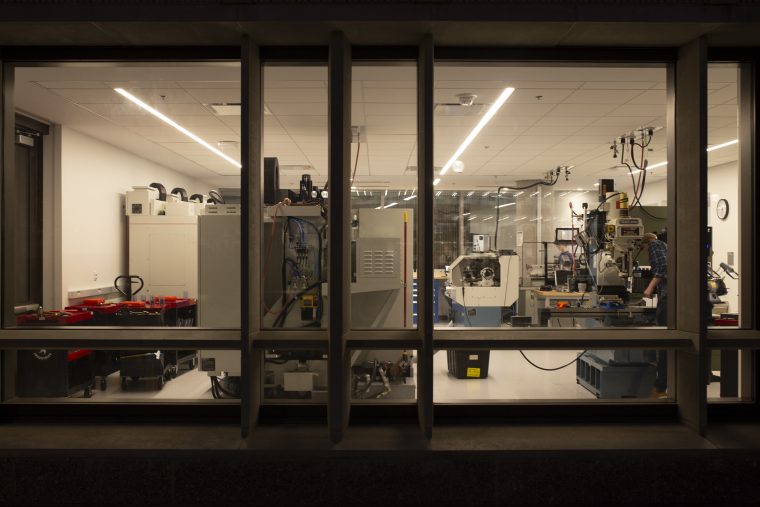Academics | News
New doctorate program combines social and data sciences
Washington University’s new doctorate program, the Division of Computational & Data Sciences, has brought together students and professors from a wide range of disciplines to tackle big societal problems through a data-driven lens in its first year of establishment.
 Photo by Curran Neenan
Photo by Curran Neenan The program is comprised of four multidisciplinary tracks: computational methodologies, political science, psychological and brain sciences, and social work and public health. All students will participate in rotations to explore the different areas before identifying the track they wish to pursue. In addition, all students will participate in a “boot camp” to jumpstart their skills in mathematics, statistics and programming before the start of their first semester.
Members of the faculty, drawn from across the University, are currently researching a variety of complex topics, such as looking for optimal policy responses to natural disasters and examining the applications of machine learning to resource allocation.
Ultimately, the program is designed to bring together these different fields and to produce a holistic approach to research to find solutions for today’s multidimensional issues.
“I think it is great that Wash. U. is working on new approaches to solving social problems,” said Mollie Seidner, a senior in the McKelvey School of Engineering. “As someone who is very data oriented, I think it will provide a new lens that will foster great developments in the near future.”
According to Dr. Patrick Fowler, chair of the department’s social work and public health track, the DCDS program, which is one of the first of its kind nationally, comes at an opportune time.
“Digital trails increasingly capture much of our lives,” Fowler wrote in an email to Student Life. “This presents big opportunities and challenges for advancing knowledge and its appropriate use. We believe a need exists for transdisciplinary science that brings together researchers, decision-makers and community members to work on new ways to use technology to improve the world.”
Fowler’s work aims to develop algorithms that can identify socioeconomically marginalized families at risk of homelessness and child maltreatment. Algorithms could play an important role in providing targeted assistance to those who need it most.
The intersections of data and social sciences contain positive potential, but also carry significant risks, such as machine learning bias. Although the rise of artificial intelligence sparked widespread hopes that technology would be a solution to human biases, the development and deployment of supposedly impartial algorithms has demonstrated that this is not inherently the case.
For example, an algorithm widely used by United States courts to determine criminal sentencing by predicting recidivism was found to be racially biased, and facial recognition algorithms designed by companies like Microsoft and IBM are almost three times better at identifying white men than women of color.
Developer biases can be unconsciously written into algorithms determining eligibility for loans, leases, and bail. According to Fowler, it is essential for developers to be cognizant of their own biases to avoid unintentionally incorporating and amplifying them into their algorithms and the team behind DCDS is aware of this.
“Our research explicitly investigates biases in data-driven decision-making,” Fowler wrote.
He also mentioned that these considerations were especially important due to the vulnerability of the populations his programs are meant to benefit.
“We are thinking very carefully about why and how data insights emerge, as well as the mechanisms through which services could improve service delivery,” Fowler said. “Given the potential for unintended consequences from overreliance on limited data, we are testing ways to look for and correct biases.”
Dina Pekelis, a sophomore in the McKelvey School of Engineering, said that her interdisciplinary interests are well-aligned with the goal of the new program.
“I’ve always been interested in both computer science and psychology and have sought after a career that would allow me to converge these interests,” said Pekelis. “As I search for internships, a lot of technical roles make really indirect impacts if any impact on society at all. This program seems like a really great way to apply technical skills in a humanitarian focused way, to make a big impact on the people of today using the technology of tomorrow.”
